May 31, 2025 | 05:35 GMT +7
May 31, 2025 | 05:35 GMT +7
Hotline: 0913.378.918
May 31, 2025 | 05:35 GMT +7
Hotline: 0913.378.918
The Australia-Vietnam Enhanced Economic Engagement Grant (AVEG) and Beanstalk - an Australian agency supporting agricultural businesses in innovative transformations - are currently conducting a program aimed at connecting agricultural businesses in the Mekong Delta region with Australian research institutes and organizations in terms of rice and shrimp production. Additionally, both parties recently organized a "Roundtable Seminar on Challenges in the Shrimp Industry" via Zoom.

Ms. Lily Tao, Project Manager at Beanstalk, stated that Vietnam is one of the leading shrimp exporters in the world. Photo: Hong Tham.
According to Ms. Lily Tao, Project Manager at Beanstalk, Vietnam is one of 30 countries most affected by climate change. Vietnam ranks first among the 84 coastal developing countries affected by rising sea levels in terms of severe consequences concerning its population and GDP growth. Additionally, it stands second in terms of the impact on land area and agricultural production.
Ms. Lily Tao emphasized that the effects of climate change are becoming increasingly evident in Vietnam. Accordingly, the average temperature in Vietnam has risen by approximately 0.26°C per decade since 1971, which is two times higher compared to the global average. Sea levels have risen by at least 20 centimeters within the last fifty years, and it is projected to increase by 32 to 76 centimeters by 2100. There are alarming weather changes with extreme conditions such as heavy rainfall, storms, floods, heatwaves, and droughts, resulting in increased salinity that diminishes aquaculture productivity.
"Climate change is expected to reduce agricultural production by nearly 12% in the Red River Delta and 24% in the Mekong Delta," stressed Ms. Lily Tao.
Ms. Lily Tao highlighted that the Vietnamese government, and several other nations, has committed to ambitious sustainable goals such as a 30% reduction in methane emissions by 2030 and a 44% reduction in greenhouse gas emissions in agricultural activities.
Ms. Lily Tao reproted that Vietnam's annual shrimp export turnover has reached approximately 4.3 billion USD. Furthermore, Vietnam has set a target to triple this figure to reach 12 billion USD by 2030, with the aim of increasing productivity to meet export demands and maintaining environmental standards. To achieve this target, a focus on Climate-Smart Agriculture (CSA) is necessary. CSA encompasses three main pillars: adaptation, mitigation, and productivity.
Ms. Lily Tao also commented on the characteristics and challenges of the Vietnam's shrimp industry. According to her, Vietnam is one of the leading shrimp exporters in the world. However, shrimp farming in Vietnam predominantly remains at a small scale, and production costs suffer as a result. Most notably, Vietnamese shrimp prices are currently higher than that of India and Ecuador.
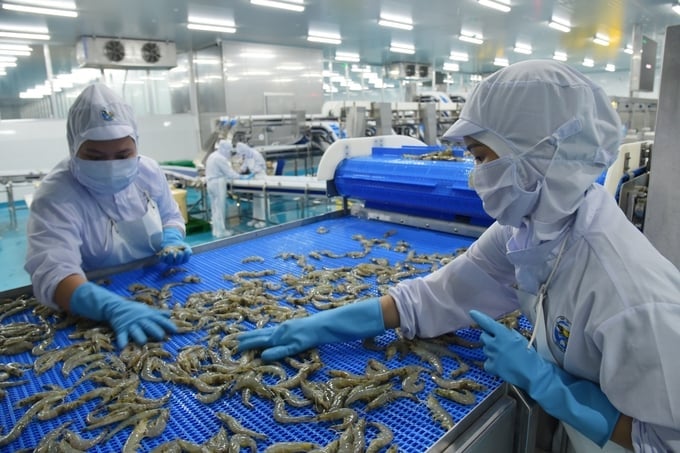
Vietnam has set a target to achieve a shrimp export turnover of 12 billion USD by 2030. Photo: Hong Tham.
The general consensus among delegates attending the seminar highlighted key challenges that require immediate resolution within Vietnam's shrimp industry. These challenges encompass disease control, environmental concerns, feed costs, seed quality, water resource management, and food safety protocols.
According to Ms. Lily Tao, the Vietnam's shrimp industry can increase its productivity and profitability markedly by reducing the risk of shrimp infections, improving water quality, minimizing waste and wastewater by converting them into valuable products.
Additionally, effective preparations must be made for erratic weather phenomena to increase the shrimp industry's adaptability and climate change resilience. It is also important to bolster the use of weather insurance for shrimp farming operations.
Moreover, it is necessary to diminish the carbon footprint from the inputs used in aquaculture feed, thereby reducing total carbon emissions in shrimp farming. Optimizing electrical consumption at farms, decreasing the discharge of polluted water into waterways, and lowering emissions from equipment and machinery are vital steps in this direction.
Two prioritized issues concerning Vietnam's shrimp industry were discussed at the seminar, including: enhancing water quality and reducing disease risk among shrimp.
Regarding the improvement of water quality in shrimp farming, Ms. Lily Tao shared potential solutions such as utilizing beneficial bacteria to break down waste, using wastewater as fertilizer, and adopting shrimp aquaculture in combination with seaweed or technology to improve water quality.
Mr. Nick Paul, a marine scientist at the University of the Sunshine Coast in Australia, stated, "We have a 1 million AUD project in experimenting with using seaweed for biological filtration. Initial test results show that seaweed has doubled the effectiveness of nutrient removal in settling ponds."
"Seaweed usage is an efficient solution. When shrimp farmers combine shrimp farming with seaweed cultivation, they can regulate water quality, enhance shrimp development, and generate additional products from this combination," added Mr. Nick Paul.
Regarding the issue of disease outbreaks in the shrimp industry, Ms. Lily Tao mentioned that diseases can lead to mass shrimp deaths, causing significant economic losses for farmers and damaging the entire value chain. Potential solutions to mitigate disease outbreaks in shrimp include selecting disease-resistant breeds and providing supplementary food to boost immunity.
Translated by Nguyen Hai Long
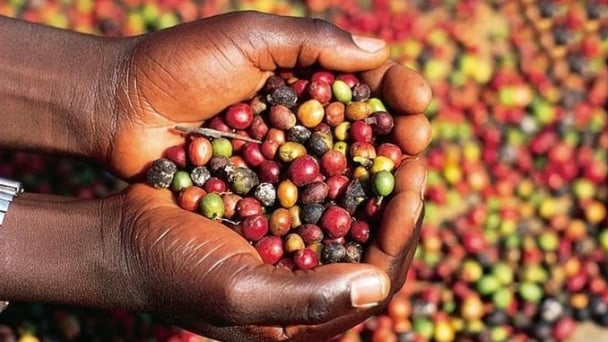
(VAN) Coffee prices on May 29, 2025, are fluctuating. The domestic coffee market declined, dropping by VND 2,200, trading at VND 119,700 – VND 120,000/kg.
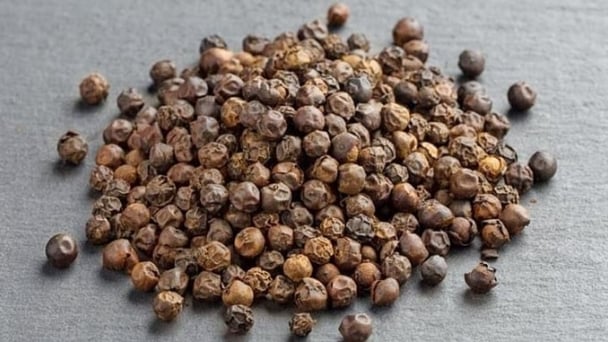
(VAN) Pepper prices on May 29, 2025 declined sharply. Domestic pepper prices in Vietnam remain stable, Trading at VND 147,000 to VND 148,000/kg.
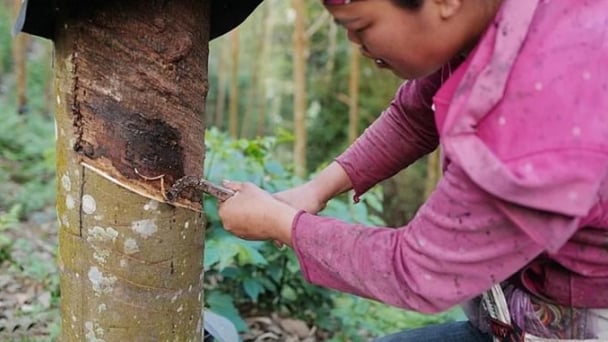
(VAN) Rubber prices on May 28, 2025 are maintaining an upward trend. Domestic latex prices remain stable, trading in the range of VND 397 to VND 462/TSC.
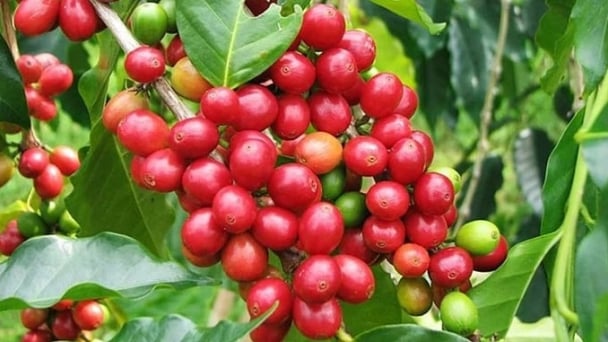
(VAN) Coffee prices on May 28, 2025, show mixed movements. Domestically, prices dropped sharply by VND 1,600, trading at VND 121,700 – VND 122,200/kg.
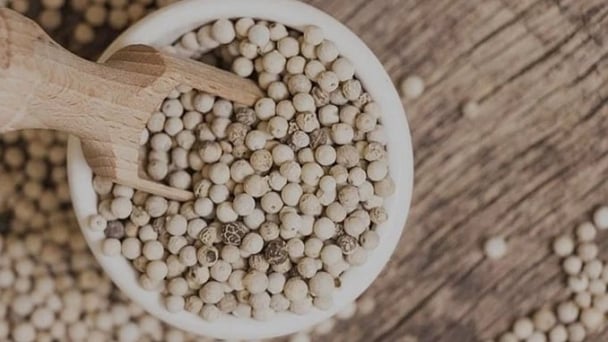
(VAN) Pepper prices on May 28, 2025, remained unchanged globally. Domestic pepper prices have increased by VND 1,500, trading at VND 147,000 – VND 148,000/kg.
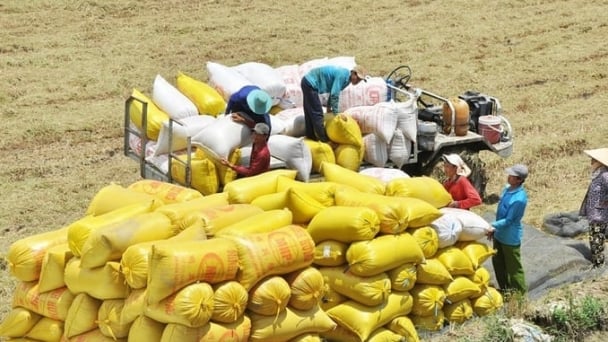
(VAN) Rice prices on May 27, 2025, show no new changes for both paddy and milled rice. Meanwhile, Vietnam’s export rice prices continue to remain flat.
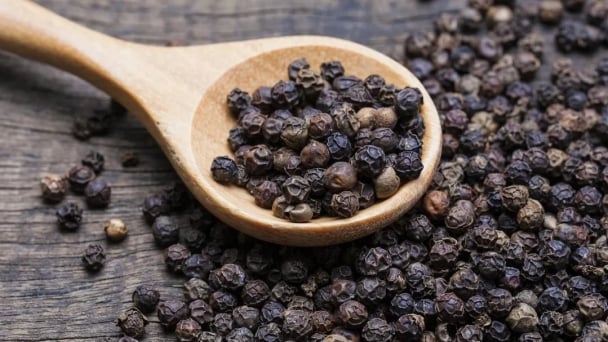
(VAN) Pepper prices on May 27, 2025, recorded a slight increase in Indonesia, while domestic prices remain stable, trading at VND 146,000 to VND 147,000/kg.